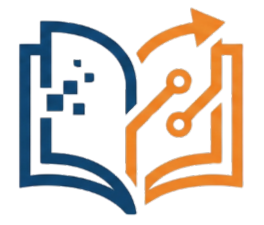Introduction
Fundamentals of Electronic Circuits is a course that covers the basic principles and concepts of electronic circuits. The course typically introduces students to the fundamental building blocks of electronic circuits, such as resistors, capacitors, inductors, and transistors, and teaches them how to analyze and design circuits using these components.
The course covers topics such as:
- Basic circuit concepts: This includes topics such as voltage, current, resistance, power, and energy.
- Circuit analysis techniques: This includes techniques for analyzing DC and AC circuits, such as Kirchhoff’s laws, Ohm’s law, nodal analysis, and mesh analysis.
- Operational amplifiers: This includes the analysis and design of circuits using operational amplifiers, which are commonly used in a wide range of electronic applications.
- Transistors: This includes the analysis and design of circuits using Bipolar Junction Transistors (BJTs) and field-effect transistors (FETs), which are key components in many electronic circuits.
- Digital electronics: This includes the basic principles of digital circuits, such as logic gates, Boolean algebra, and digital integrated circuits.
Fundamentals of Electronic Circuits is a core course in many electrical engineering and computer engineering programs, as it provides a foundation for more advanced courses in electronic circuits, analog and digital electronics, and communication systems.
What is the difference between Fundamentals of Electrical Circuits Course and Fundamentals of Electronic Circuits Course?
Fundamentals of Electrical Circuits and Fundamentals of Electronic Circuits are two related but distinct courses that cover different aspects of circuit analysis and design.
Fundamentals of Electrical Circuits is a course that typically covers the principles and concepts of electrical circuits, including direct current (DC) circuits, alternating current (AC) circuits, and transient analysis. The course typically covers topics such as circuit elements (such as resistors, capacitors, and inductors), circuit laws (such as Ohm’s Law and Kirchhoff’s Laws), and techniques for analyzing and designing electrical circuits.
Fundamentals of Electronic Circuits, on the other hand, is a course that typically focuses on electronic circuits, which are circuits that rely on active components such as diodes, transistors, and integrated circuits. The course typically covers topics such as semiconductor materials, diodes, bipolar junction transistors (BJTs), field-effect transistors (FETs), operational amplifiers (op-amps), and digital logic gates. The course emphasizes the analysis and design of electronic circuits, particularly those used in digital electronics, analog electronics, and communication systems.
In summary, while both courses cover circuit analysis and design, Fundamentals of Electrical Circuits typically focuses on electrical circuits, including power systems, while Fundamentals of Electronic Circuits typically focuses on electronic circuits, including semiconductor devices and integrated circuits.
Why is Fundamentals of Electronic circuits course important for computer engineering students?
Fundamentals of Electronic Circuits is an important course for computer engineering students for several reasons:
- It provides a foundation for more advanced courses: Electronic circuits are a fundamental building block of many computer systems, from microprocessors to memory modules. A solid understanding of electronic circuits is therefore essential for computer engineering students who will be designing and building these systems.
- It teaches key concepts in analog and digital electronics: Electronic circuits can be broadly divided into analog and digital circuits. Fundamentals of Electronic Circuits covers the principles and concepts of both types of circuits, providing students with a solid understanding of key topics such as amplifiers, filters, oscillators, logic gates, and flip-flops.
- It teaches circuit analysis and design skills: Electronic circuits require careful analysis and design to ensure that they operate as intended. Fundamentals of Electronic Circuits teaches students how to analyze and design electronic circuits using various techniques such as Kirchhoff’s laws, nodal analysis, and mesh analysis. These skills are essential for designing electronic circuits that meet specific performance criteria.
- It prepares students for a career in the electronics industry: Computer engineering students who have a strong understanding of electronic circuits are well-positioned for a career in the electronics industry, which includes areas such as consumer electronics, telecommunications, automotive electronics, and industrial control systems.
Overall, Fundamentals of Electronic Circuits is an important course for computer engineering students because it provides them with the foundational knowledge and skills needed to design and build electronic circuits, which are critical components of many computer systems.
Is the Fundamentals of Electronic Circuits course difficult?
The difficulty of the Fundamentals of Electronic Circuits course can vary depending on several factors, including your background knowledge in mathematics, physics, and circuit theory, as well as the instructor’s teaching style and the rigor of the course material.
That being said, the course can be challenging for some students due to its focus on abstract concepts and mathematical models. The course typically requires a strong foundation in algebra, trigonometry, and calculus, as well as an understanding of basic circuit theory concepts such as voltage, current, resistance, and power.
Furthermore, the course covers a wide range of topics, including semiconductor physics, diode and transistor circuits, operational amplifiers, and digital logic circuits, which can be complex and challenging to understand.
However, with the right mindset, study habits, and resources, it is possible to succeed in the Fundamentals of Electronic Circuits course. Some tips for success include attending lectures and taking detailed notes, practicing problem-solving and circuit analysis regularly, seeking help from the instructor or teaching assistants when needed, and using textbooks, online resources, and study groups to supplement your learning.
In summary, the Fundamentals of Electronic Circuits course can be challenging, but with dedication and effort, students can develop a strong understanding of electronic circuits and circuit theory.

